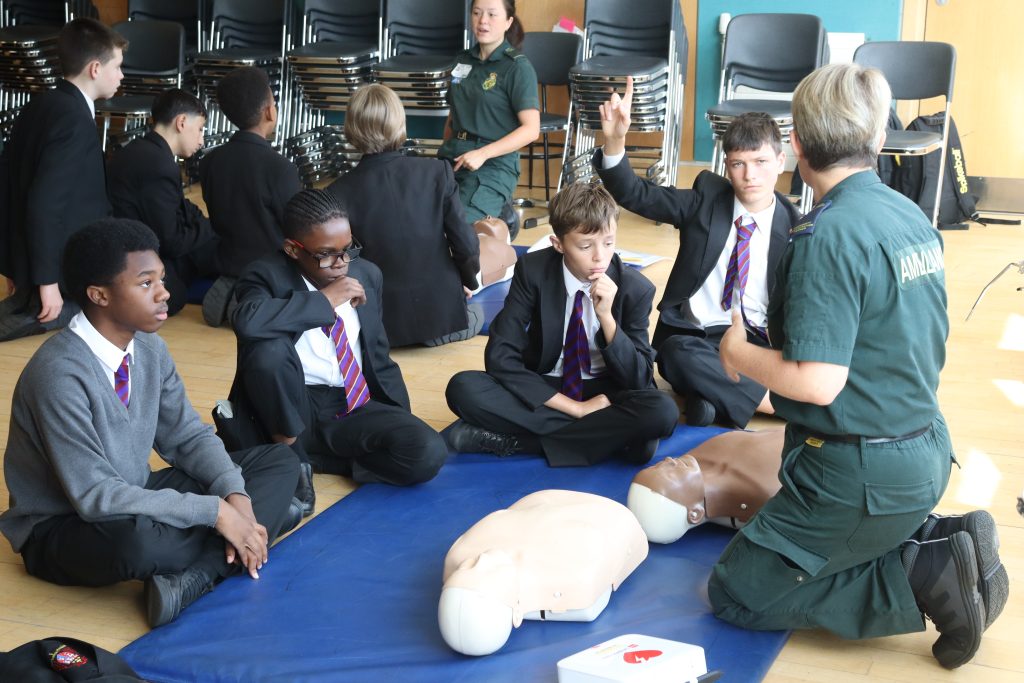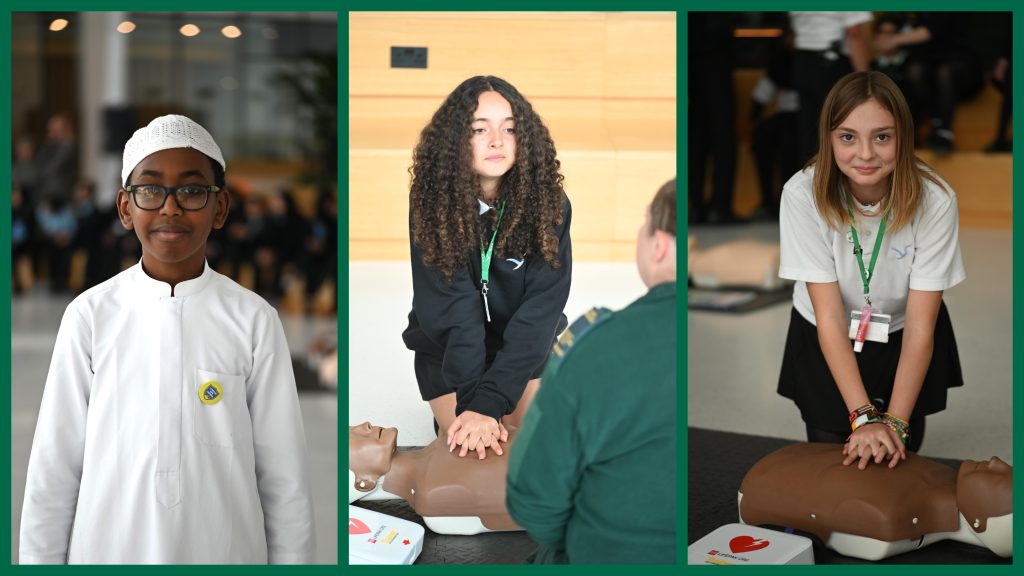10,000 schoolchildren given life-saving training with London Ambulance Service
Almost 10,000 schoolchildren have been taught how to save a life in the first year of an ambitious campaign to create a generation of lifesavers.
London Ambulance Service (LAS) launched its London Lifesavers schools campaign on Restart a Heart day in October last year.

Clinicians from LAS have already taught life-saving skills to 9,821 Year 8 children from schools across the capital in time for this year’s event on Wednesday (October 16). A further 17 schools – with around 2,000 more children – are booked in for sessions up until the end of the year.
The free training teaches children how to recognise when someone is in cardiac arrest and how to give chest compressions – known as CPR – and use a defibrillator – and have recently trained pupils at Cardinal Vaughan Memorial School in west London.
Year 8 student Nasir said:
“We learned a lot in primary school about the first steps of how to prevent accidents, but this has been the second step in how to actually help others when an accident has already happened.
“It’s really good to know how to do everything you can before an ambulance comes.”

Paramedics and emergency medical technicians are visiting two schools and teaching hundreds of children every week.
Patrick Kelleher, Assistant Headteacher at Cardinal Vaughan Memorial School, said:
“The London Lifesavers programme empowers pupils with the knowledge and confidence to respond effectively during critical moments before professional medical help arrives. This will no doubt help to saves lives in the future.”
Analysts at LAS studied data to work out where to offer training first and has targeted 21 priority boroughs in the first year of the campaign.
These areas have some of the lowest cardiac arrest survival rates in the capital. They also include some of the areas with the highest level of deprivation: this programme aims to improve outcomes and life expectancy for communities blighted by health inequalities.
At the moment fewer than one in 10 people survive a cardiac arrest. Early chest compressions and the use of a defibrillator can more than double someone’s chances of survival.
Daniel Elkeles, Chief Executive, said:
“We are incredibly proud of our work to train a new generation of life savers in the capital, and delighted by the progress we have made in the year since the campaign was launched.
“There are so many ways Londoners can support us to save more lives, including helping us to fund and place life-saving defibs in the areas where they are needed most. I would encourage everyone to get involved.”

Follow us on social media: